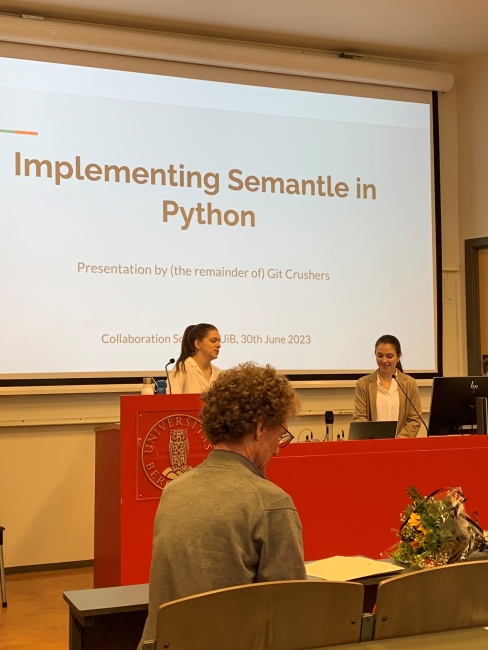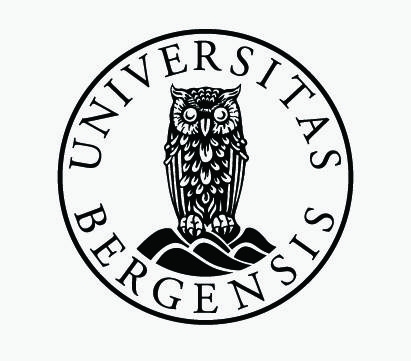
The interdisciplinary summer school for PhD candidates and younger researchers ‘The Collaborative Software Development School’ took place from 19-30 June, 2023, at the University of Bergen. The summer school was a collaboration between the Digital Lab at the University of Bergen Library, Digital Culture at the Department of Linguistic, Literary and Aesthetic Studies, and the Department of Informatics at the University of Bergen.
The 15 participants in the summer school came from different universities and institutions in Norway and mainly from fields connected to the social sciences and humanities (SSH). Among the participants were foremost PhD candidates, but also master students, postdocs and academic staff members.
Best Practices and Sustainability
In line with CLARIN’s mission to create and maintain an infrastructure to support the sharing, use and sustainability of language data and tools for research in SSH, the aim of this summer school was to train the participants in best practices and sustainability when developing software in research. In a mixture of talks and hands-on sessions, the focus lay on showing best practices and building fundamental skills in creating, extending and collaborating on software development using Python and Git. The participants were introduced to topics such as effective collaborative development, version control tools, user interactions, testing and debugging, profiling and optimisation, mixing programming languages, as well as copyright and licensing.
Rune Kyrkjebø from the University Library introduced CLARIN in his talk ‘CLARIN - Common Language Resources and Technology Infrastructure’, while Jan Ole Bangen and Henrik Askjer gave two CLARINO related real-life examples in their presentations about, respectively, Termportalen and The Dictionary Revision Project of the two dictionaries Bokmålsordboka and Nynorskordboka connected to the Language Collections at the University of Bergen.
Among the learning outcomes of the course is the participants' ability to identify challenges related to developing software in a group, and to know how to use tools and techniques to make this process easier. In addition, the transdisciplinary setting trained their presentation and communication skills and promoted cross-domain collaborations. A large part of the learning effect came from the group projects in the second half of the course, where participants were given a programming task that they needed to address from scratch in small groups.
Organisers and Instructors

The following instructors and helpers were involved in the summer school:
- David Grellscheid (Associate Professor, Department of Informatics, University of Bergen),
- Ali Farnudi (Postdoc, École Normale Supérieure de Lyon, France)
- Jill Walker Rettberg (Professor in Digital Culture, Department of Linguistic, Literary and Aesthetic Studies, University of Bergen)
- Henrik Askjer (Developer, University Library)
- Jenny Ostrop (Senior Academic Librarian, University Library)
- Rune Kyrkjebø (CLARINO-expert, Senior Academic Librarian, University Library)
- Jan Ole Bangen (Developer, University Library)
- Gry Ane Vikanes Lavik (Academic Librarian, University Library)
- Laura Garrison (Associate Professor, Department of Informatics, University of Bergen)
- Korbinian Bösl (Senior Engineer, Data Management coordinator at ELIXIR Norway & Centre for Digital Life Norway)
- Gutama Ibrahim Mohammad (PhD Candidate, Department of Informatics, University of Bergen)